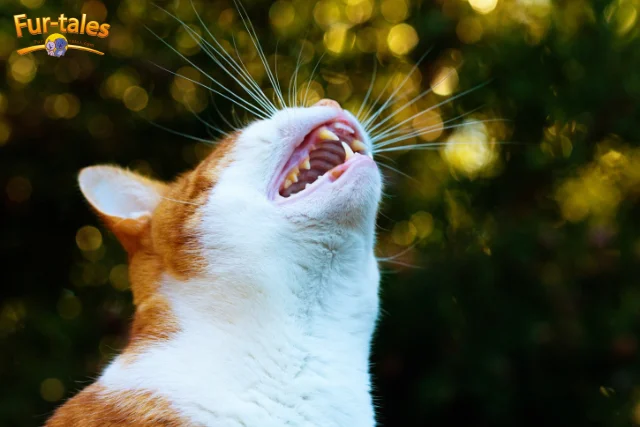
Understanding Cat Yowling: What’s Behind the Loud Meows?
If you’re a cat owner, you’ve likely experienced the curious phenomenon of cat yowling. That deep, loud, and sometimes eerie sound is impossible to ignore, especially when it happens in the middle of the night. But what causes this distinct vocalization, and is it something to be concerned about? In this article, we’ll explore the many reasons behind cat yowling, how to interpret it, and what you can do to help your feline friend.
What is Cat Yowling?
Cat yowling is a form of vocal communication that is notably louder, longer, and more intense than a typical meow. While meowing is often reserved for cat-to-human communication, yowling can serve multiple purposes in feline social structures and individual needs. Unlike soft purrs or chirps, yowls are designed to grab attention and indicate that something important is going on.
Common Reasons Behind Cat Yowling
- Seeking Attention Many cats yowl simply because they want attention. Whether they need food, playtime, or companionship, yowling becomes a go-to method to get noticed. Cats are smart and learn quickly that yowling usually prompts a response from their human.
- Mating Calls Unspayed female cats in heat often emit loud yowls to signal their availability to male cats. Likewise, unneutered males may yowl in response when they sense a nearby female in heat. This form of cat yowling is part of natural mating behavior.
- Medical Issues If your cat has suddenly started yowling more than usual, a medical condition could be to blame. Issues such as hyperthyroidism, kidney disease, or urinary tract infections can cause discomfort, leading your cat to vocalize their distress. A sudden increase in vocalization warrants a vet visit.
- Cognitive Dysfunction in Senior Cats As cats age, some may develop cognitive dysfunction syndrome (similar to dementia in humans). Older cats experiencing confusion or disorientation may yowl frequently, especially at night when the house is quiet.
- Stress and Anxiety Changes in a cat’s environment—such as moving to a new home, introducing a new pet, or even rearranging furniture—can cause stress. A stressed or anxious cat may use yowling as an outlet for their feelings.
- Territorial Behavior Cats are territorial creatures. If your cat sees another animal outside or senses their territory is being invaded, they might respond with loud yowling to assert dominance or express discomfort.
- Hunger or Thirst A basic but often overlooked cause of cat yowling is hunger or thirst. Cats may yowl to remind you that their food or water bowl is empty, especially if you’ve changed feeding schedules or types of food.
- Nighttime Activity Cats are crepuscular, meaning they are most active during dawn and dusk. Many pet owners notice that cat yowling intensifies at night when their feline is feeling playful or restless.
- Breed-Specific Traits Some cat breeds are naturally more vocal than others. For example, Siamese and Oriental breeds are known for their frequent and loud vocalizations, which can include yowling.
How to Address Cat Yowling
Understanding the cause of your cat’s yowling is the first step to resolving it. Here are practical steps to address the behavior:
- Visit the Vet If the yowling is sudden or unusual, consult your veterinarian to rule out any medical issues. Early detection of illnesses can prevent more serious health concerns.
- Spay or Neuter Your Cat Spaying or neutering can significantly reduce mating-related yowling. This step also helps control the pet population and can improve overall behavior.
- Provide Mental and Physical Stimulation Interactive toys, puzzle feeders, and regular play sessions can keep your cat entertained and reduce boredom-induced yowling.
- Establish a Routine Cats thrive on consistency. Feeding, playtime, and bedtime routines can create a sense of security and reduce anxiety-driven vocalizations.
- Ensure Basic Needs Are Met Check that your cat’s food, water, and litter box are clean and accessible. Sometimes, the solution to yowling is as simple as filling the water bowl.
- Create a Calm Environment For cats prone to anxiety, create a peaceful space with hiding spots and cozy bedding. Using pheromone diffusers like Feliway can also help ease stress.
- Address Nighttime Yowling Try to engage your cat in active play sessions during the evening to tire them out. Feeding them a substantial meal before bedtime can also encourage them to sleep through the night.
- Positive Reinforcement Avoid reinforcing yowling by responding every time it occurs. Instead, reward your cat with attention or treats when they are quiet to encourage more desirable behavior.
When to Be Concerned About Cat Yowling
While some yowling is normal, excessive or sudden vocalization can signal a problem that requires attention. If your cat’s yowling is accompanied by other symptoms like weight loss, aggression, or changes in eating habits, a vet visit is essential. Additionally, if yowling is disrupting your household or seems tied to emotional distress, professional guidance from a behaviorist might be beneficial.
FAQs About Cat Yowling
1. Is cat yowling a sign of pain?
It can be. If your cat is yowling persistently and displays other signs of discomfort like hiding, limping, or reduced appetite, consult a veterinarian.
2. How can I tell if my cat’s yowling is due to cognitive dysfunction?
Senior cats with cognitive dysfunction may yowl more at night, appear disoriented, or forget where their litter box is. A vet can help diagnose this condition.
3. Can diet changes stop my cat from yowling?
If the yowling is related to hunger or a lack of nutrients, adjusting their diet can help. However, diet alone won’t resolve yowling caused by medical or behavioral issues.
4. Do cats yowl when they’re bored?
Yes, boredom can trigger yowling. Providing enrichment through toys, scratching posts, and interaction can reduce vocalizations.
5. Should I ignore my cat when they yowl?
If the yowling is for attention and your cat’s needs are met, it’s best not to reinforce the behavior. Instead, reward them when they are quiet.
Image Source: Canva
